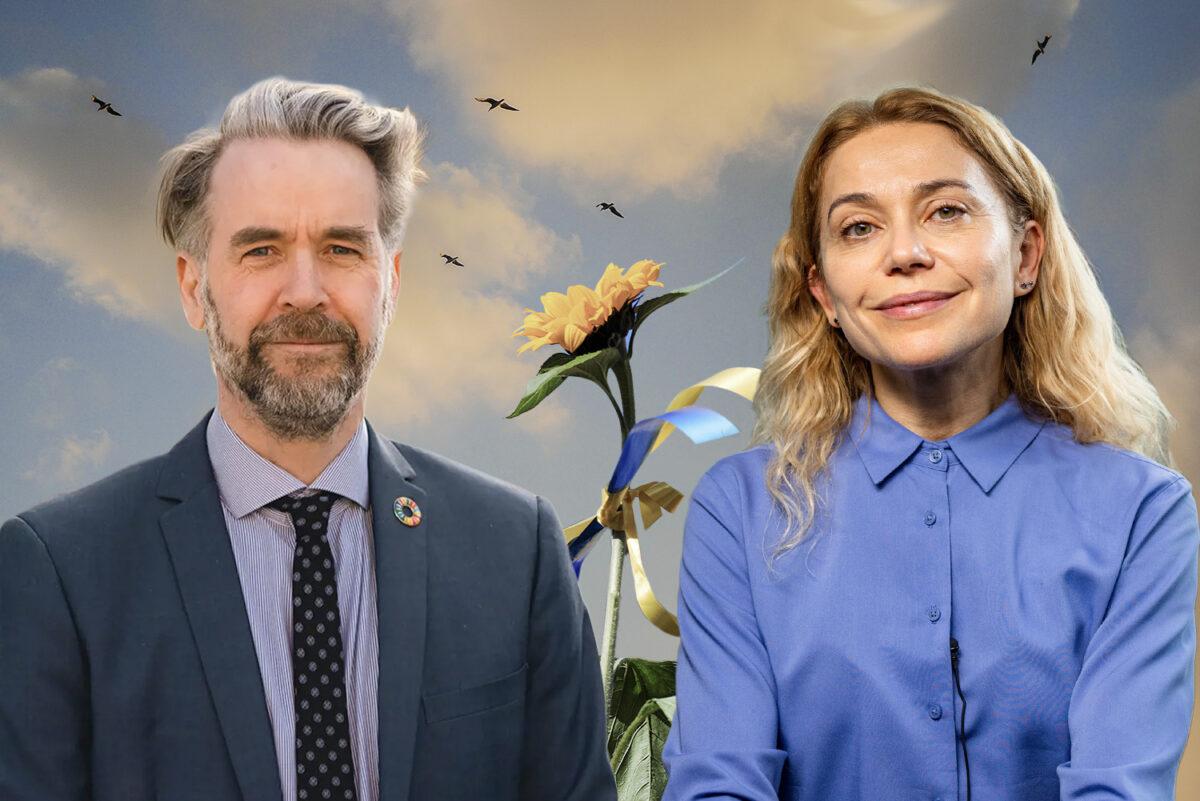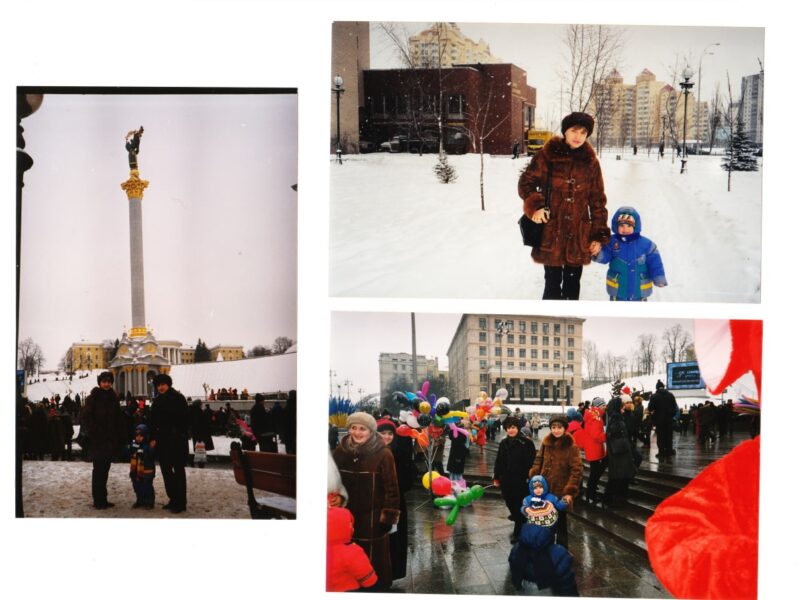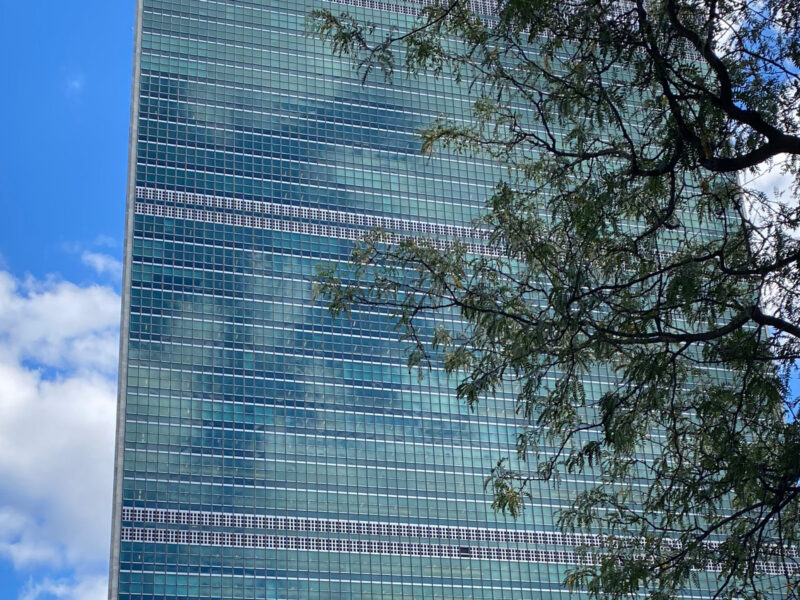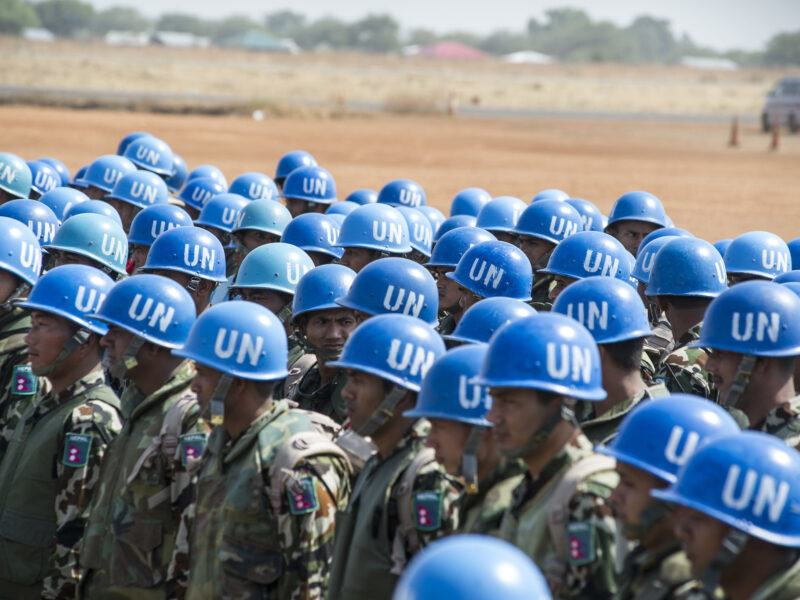Summertime in Kyiv
4 juli, 2022More than 100 days after the Russian invasion, the FBA's support to Ukrainian local authorities continues.
One year on, FBA’s staff dedicated to the organization’s development work in Ukraine, remember the day that forever changed our world – Russia’s full-scale invasion of Ukraine on February 24, 2022.

It’s like all your life before, everything you did, dreamed about, saw, places travelled to, all feelings – everything just stopped…
Julia Sedyk, Kyiv
Exactly a year ago, early morning of February 24, 2022, I woke up because my phone kept calling. The atmosphere of the previous days, full of rather explicit threats from Russia and the vibes of a looming war, made me tired and I didn’t want to wake up.
But when I looked at my phone and saw that there were about twenty missed calls, and it wasn’t even 6 am, I immediately understood what had happened.
It is very hard to describe this feeling. It’s like your entire life; everything you did, dreamed about, saw, places travelled to, all feelings – everything just ceased to exist. And the new reality, unknown and ugly, came crawling into my room, still dark, with a sound of cold rain drops outside, and the movement of cars, usually so rare on our quiet street. In ten minutes, I was outside driving to my mother and sister; our plans A, B, and C were the same – get together, keep our families together, try to survive in the unknown circumstances.
To be frank, we all hoped that it would not happen…
Carl Fredrik Birkoff, Stockholm
It was a usual Thursday morning.
We still hadn’t returned completely to normal work routines after more than a year of pandemic, so I planned to work from home; there were scheduled phone calls with our colleagues in the Kyiv office – Julia and Uliana – to coordinate our next steps working on the Ukraine project.
2021 had been a very successful year for us; our Ukrainian partner organizations put significant efforts into our joint programs, dedicated to reintegration of veterans, and improvement of delivery of administrative services by local governments from the rule of law prospective. In 2022, we planned to wrap up the joint project we had with Sida and transition to activities under the new Strategy on Cooperation with Eastern Europe.
The news about the start of a “special military operation”, as it was announced by Russian president Vladimir Putin, in fact – the full-scale invasion of Russia into its neighboring country – came suddenly but not completely unexpectedly.
To be frank, we all hoped that it would not happen, so it was still a feeling of unreal, rather surreal, beginning of a sequence of events. My first thought was to reach out to our Ukrainian colleagues to find out their whereabouts and plans.
The street was empty and the sound of sirens – air strike alarms – made our usual route impossible; I tried to stay close to home.
Julia Sedyk, Kyiv
The first day passed in a very strange mode. We all settled in our apartment. Three children, in the age from nine to 17, watching Netflix, my sister and I, reading the news and trying to make last minute grocery shopping – it wasn’t understandable what we had to prepare for, but the shopping, even in a silent, half-empty supermarket, gave us the feeling of normality.
Next morning, I went for a walk with my dog. The street was empty and the sound of sirens – air strike alarms – made our usual route impossible; I tried to stay close to home. What if the street fights, which we were warned about, will start right now, and I would be far away from my son and family? Later in the day, pale sunshine of February afternoon, tender blue sky and complete silence, were giving me the chills.
From our kitchen window, I could see the empty street. I sat there and tried to be calm. I was reading messages from my colleagues in Stockholm that since yesterday, they were trying to support even from far away. I spoke to Uliana – she was still in Kyiv.
Just an hour later, I made a sudden decision – we need to move. It was clear that whatever comes, I will not be able to protect our children. This unfamiliar feeling struck me and nearly caused a panic attack.
…or we could continue working on programs that would be useful after war ends and after Ukraine’s victory.
Carl Fredrik Birkoff, Stockholm
We kept contact with both our colleagues, Julia and Uliana, while there were moving away from Kyiv to the western part of Ukraine. Just two weeks later, Julia was able to come to Stockholm. As far as I knew, her family and the family of her sister split – one went to Poland and another to Turkey. So, we coordinated about meeting in Stockholm so we could start reaching out to our partner organizations to discuss appropriate approaches. Our activities in this case could be either in response to the challenges of war time – in accordance with our project goals and activity framework – or we could continue working on programs that would be useful after war ends and after Ukraine’s victory.
By that time, I already stopped crying for every loss of life and every deadly attack…
Julia Sedyk, Kyiv
During 2022, after the initial shock and confusion, we were able to continue cooperation with our partners in Ukraine. Many of them were abroad, some of them stayed in Ukraine. But all of them were eager to work, to make the victory of Ukraine visible and tangible; to demonstrate the hope and confidence in a just outcome of this unfair war.
In September and October, I met all our partner organizations in Kyiv. A series of work meetings, coffee in our favorite corners of Podil district, felt like nothing has changed. Except necessity to stop meeting and go to a shelter during air strike alert, that many had dismissed by then.
It was a few days before Russians started employing drones for attacks on civilian houses and infrastructure in Kyiv and other Ukrainian cities. By that time, I had already stopped crying for every loss of life and every deadly attack. I just felt that I had to keep going and keep working to at least do something useful for our future.
In the eyes of our partners, we saw the same determination and hope; they were ready to keep going.
Carl Fredrik Birkoff, Stockholm
In December 2022, all our partners, both NGOs and representatives of local governments and national government bodies, came to Stockholm to discuss the sustainability of our efforts and ways forward.
After almost a year of tremendous efforts facing huge influx of internally displaced persons, dealing with humanitarian crisis, or being occupied by Russian arms and working remotely from Ukraine-controlled territory, they were tired. Also their travel wasn’t easy – there were no flights from any Ukrainian city; trains, bus, and finally a group flight from Warsaw – for some of them, traveling took up to 48 hours.
We tried to make our five days of event as meaningful as possible for everyone, and to create a platform where we all could communicate with each other, sharing our experiences of 2022, without being disrupted by air strike alarms or work emergencies. In the eyes of our partners, we saw the same determination and hope; they were ready to keep going.
And to continue fighting for winning peace.
The War in Ukraine – How FBA is Assisting (fba.se)
av Carl Fredrik Birkoff, Julia Sedyk
Many people imagine war as life buried under rubble, isolated and broken. That is one face of it, for sure. But the other side is much more surreal: a “normal” routine that persists despite everything.

FN-dagen infaller den 24 oktober. När organisationen nu firar sin 80-årsdag är det många som undrar hur den mår.

Amidst rising global tensions and a continuous increase of authoritarianism, polarisation and disinformation, the need for evidence-based solutions for conflict resolution, prevention and peacebuilding is now more crucial than ever before.

Democratic practices have a long history in Iraq. But as a consequence of the more recent decades of authoritarian and centralized rule, the distinct responsibilities of citizens and the state in a democracy cannot be taken for granted.